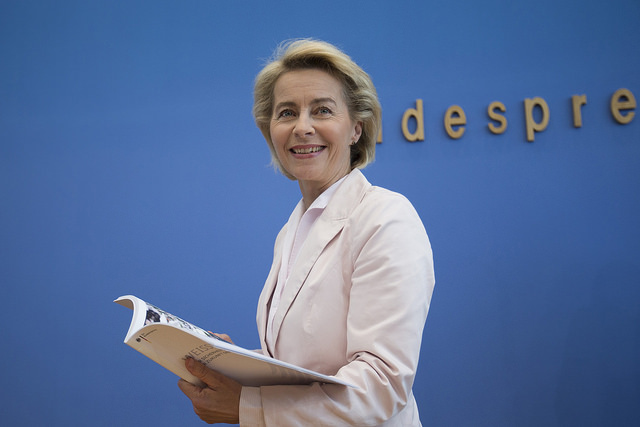 So the new “White Book” policy framework the German Defense Ministry published this week — its first in a decade — is of interest not only to policy wonks and academics.
So the new “White Book” policy framework the German Defense Ministry published this week — its first in a decade — is of interest not only to policy wonks and academics.
It delivers a ringing message that Germany will assume greater responsibility for defending the liberal international order — and its potential weight as a fundamental statement of government policy is all the greater because it comes only a few weeks after foreign minister Frank-Walter Steinmeier’s widely criticized, misguided remarks about NATO “ saber-rattling” and the need for a “responsibility partnership” with Russia….
Germany, the White Book says, is willing to contribute “early, decisively and substantially” to the protection of Western security. It promises reliability — and to match its funding to its words. At the very least, this is a welcome attempt to face up to repeated (and justified) criticisms.
The White Book affirms Germany’s commitment to NATO, calling the transatlantic alliance with the United States “indispensable for the security of Europe.” Allied solidarity, it states, is a “duty and a responsibility” for Germany. It’s probably safe to read that as a direct admonition to those 58 percent of Germans who opined in a 2015 Pew Research Center poll that their country should not use military force to defend an ally against attack.
The White Book also notes that Europeans need to make their societies, economies, data flows and institutions more resilient and to take on a greater share of the security burden, not least by investing more (much more) in their own military capabilities. It pledges that Germany will work harder to fulfill its NATO promise to invest 2 percent of its gross domestic product in defense. Russia, it says, is challenging the European security order “for the foreseeable future” and emphasizing its strategic rivalry with the West….
Still, Steinmeier’s criticism of NATO (and the praise he received from many Germans for it) shows that this new narrative of greater responsibility remains hotly disputed. The national elections looming in September 2017 — and the fact that the minister’s Social Democratic Party is polling at a historic low of 20 percent — are just a trigger. The German Question remains contested — including in Germany.
Constanze Stelzenműller is the Robert Bosch Senior Fellow at The Brookings Institution.
Image: German Defense Minister Ursula von der Leyen, July 13, 2016 (photo: Christian Thiel/Bundeswehr)
